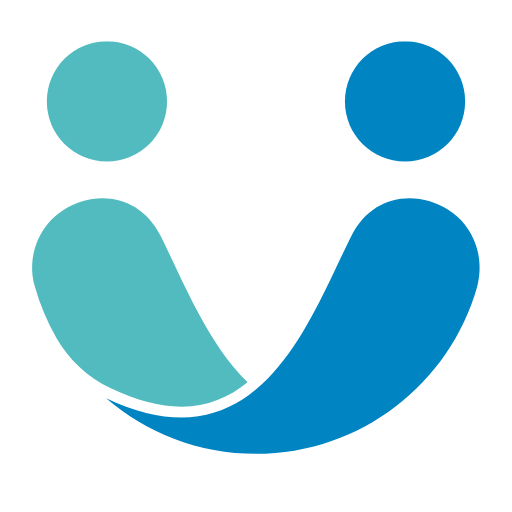Global mHealth Apps Market Surges Ahead Amid Growing Digital Health Transformation

The mHealth Apps Market is experiencing exponential growth driven by rising smartphone penetration, increased healthcare awareness, and the global shift toward digital healthcare solutions. As more consumers embrace mobile-based platforms for health monitoring, fitness tracking, and chronic disease management, the mHealth ecosystem is transforming the way healthcare is delivered and accessed.
The COVID-19 pandemic acted as a powerful catalyst, accelerating the adoption of mobile health (mHealth) apps across demographics and regions. With the focus now shifting to preventive care and remote diagnostics, both patients and healthcare providers are turning to app-based services for convenience, cost-effectiveness, and improved outcomes.
From mental wellness and medication reminders to teleconsultation and chronic illness tracking, mHealth applications are redefining personalized healthcare delivery across both developed and emerging markets.
Request a Sample Report: https://dataintelo.com/request-sample/28023
Key Market Drivers
Several critical factors are fueling the sustained expansion of the mHealth Apps Market:
-
Rising Smartphone and Internet Penetration
The global proliferation of smartphones and high-speed internet has made digital health services more accessible than ever before. -
Increased Focus on Preventive Healthcare
Users are increasingly leveraging fitness, diet, and symptom-checking apps to proactively manage their health and wellness. -
Demand for Remote Patient Monitoring
Healthcare providers are integrating mHealth apps to monitor patients remotely, reducing hospital visits and enabling early interventions.
Market Restraints
Despite strong momentum, the mHealth Apps Market faces several challenges:
-
Data Privacy and Security Concerns
With the rising use of health apps, ensuring the security of sensitive user data remains a significant hurdle. -
Regulatory Uncertainty
Variations in healthcare app approval and compliance requirements across regions can hinder market expansion. -
User Engagement and Retention
High app abandonment rates and low user engagement levels can impact the long-term growth of certain mHealth platforms.
View Full Report: https://dataintelo.com/report/mhealth-apps-market
Emerging Market Opportunities
The digital health revolution continues to open new avenues for growth:
-
Wearable Integration
The combination of mHealth apps and wearables allows users to track real-time health data such as heart rate, sleep quality, and activity levels. -
AI-Powered Health Insights
Artificial Intelligence is enhancing diagnostic accuracy, personalizing recommendations, and streamlining virtual care delivery within apps. -
Growth in Geriatric Care
As the aging population increases, demand is surging for elderly care-focused mHealth solutions that simplify medication management and health tracking.
Market Dynamics and Forecast
The mHealth Apps Market is expected to grow at a compelling compound annual growth rate (CAGR) through 2032, supported by:
-
Government Healthcare Initiatives
Public health organizations worldwide are promoting mHealth apps as part of digital health strategies to reach remote populations. -
Consumer Health Trends
The rising popularity of lifestyle tracking, mindfulness, and reproductive health apps is expanding the user base across age groups. -
Expanding Developer Ecosystem
A surge in startups and health-tech developers is driving innovation, offering customized apps for niche health needs.
Check Out the Report: https://dataintelo.com/checkout/28023
Regional Insights
The mHealth Apps Market presents diverse growth potential across global regions:
-
North America
A mature market with advanced healthcare infrastructure and high smartphone adoption. Strong growth is driven by fitness apps and telemedicine platforms. -
Europe
Government regulations supporting digital health, combined with increased chronic illness prevalence, are boosting adoption. -
Asia-Pacific
With a massive population base and increasing smartphone penetration, the region shows tremendous potential, especially in India, China, and Southeast Asia. -
Latin America & Middle East
Emerging economies are beginning to embrace mHealth as part of their broader healthcare accessibility goals, despite infrastructural limitations.
Market Segmentation
The market can be broadly segmented by:
-
Type of Application:
-
Fitness and Lifestyle Management
-
Disease and Treatment Management
-
Women’s Health
-
Mental Health & Wellness
-
Remote Monitoring Services
-
-
Platform:
-
Android
-
iOS
-
Others
-
-
End Users:
-
Individual Consumers
-
Healthcare Providers
-
Payers (Insurance)
-
Employers and Corporate Wellness Programs
-
Each segment caters to specific user needs and presents unique revenue opportunities across demographics.
Noteworthy Trends Shaping the mHealth Landscape
Ongoing developments are driving innovation and reshaping the mHealth Apps Market:
-
Personalized Healthcare Delivery
AI and machine learning are helping tailor health solutions to individual needs, enhancing engagement and outcomes. -
Voice and Chatbot Features
Virtual assistants and symptom-checking bots improve user interaction and self-diagnosis capabilities. -
Mental Health Acceptance
The normalization of discussions around mental wellness is fueling demand for therapy, meditation, and mood-tracking apps.
Strategic Insights for Stakeholders
Stakeholders can gain competitive advantage by:
-
Investing in UX/UI
Improving interface design and personalization features boosts retention and user satisfaction. -
Expanding into Underserved Markets
Localized language support and culturally relevant content can drive adoption in emerging regions. -
Collaborating with Healthcare Providers
Partnering with hospitals and clinics enhances credibility and encourages wider use in care pathways.
Future Outlook
As digital health ecosystems evolve, the mHealth Apps Market is set to play a pivotal role in democratizing access to care, encouraging healthier lifestyles, and improving public health outcomes. Future innovations will likely focus on interoperability, cross-platform integration, and AI-enhanced diagnostics, further strengthening the app-based healthcare model.
Stakeholders who prioritize user-centric design, regulatory compliance, and health outcomes will be best positioned to capitalize on the industry’s rapid expansion.
About Dataintelo
Dataintelo is a trusted market research and consulting firm delivering data-driven insights and strategic intelligence across industries. Its deep-dive analysis of the mHealth Apps Market offers actionable forecasts and growth pathways for investors, innovators, and policy leaders navigating the evolving landscape of mobile healthcare.







